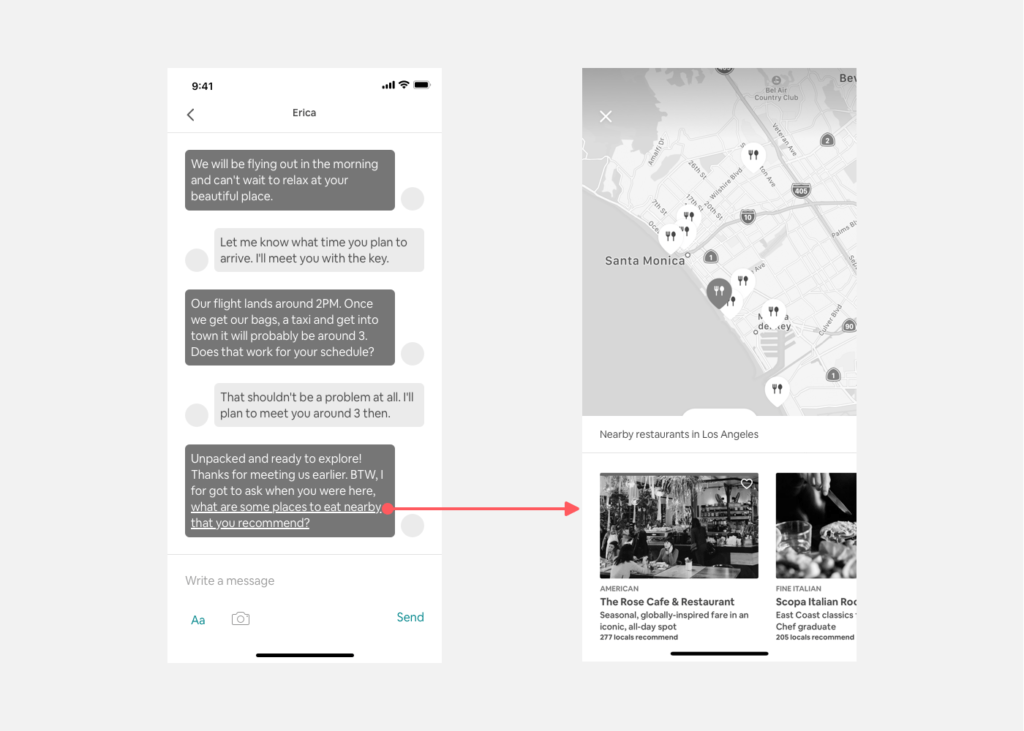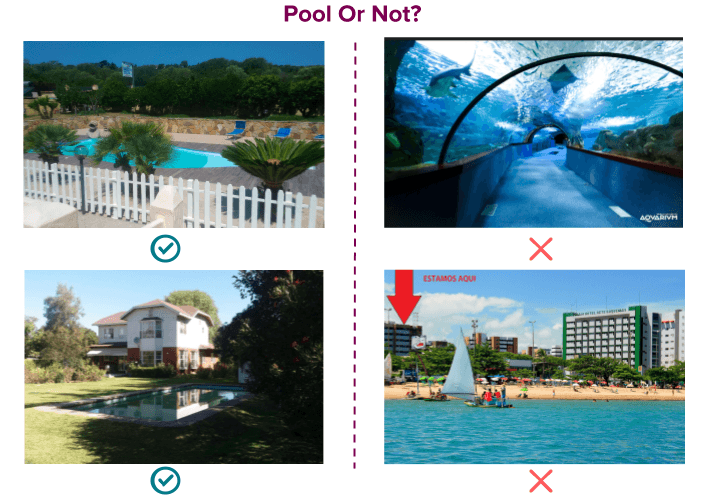Airbnb – using AI to evaluate if a guest is trustworthy

Airbnb has fueled its growth using machine learning and data analytics. It is now looking at using AI to determine if a guest is trustworthy or not – does this make Airbnb untrustworthy?
Overview
Airbnb has seen exceptional growth over the past decade and is now one of the largest competitors in the travel industry. Airbnb has grown to 7M+ listings in 100K+ cities worldwide [1], with much of this growth being fueled by Airbnb’s use of continuous A/B testing and machine learning to optimize the experience for both guests and hosts.
Value Creation
Airbnb creates value through its Engineering & Data Science team, which uses Airbnb’s extensive data warehouse to analyze and predict user behavior and the performance of listings. Airbnb consistently works to improve the experience for guests and hosts in order to maximize the number of bookings occurring on the site.
Examples of Airbnb’s advanced use of data analytics and artificial intelligence include:
- Classifying in-app message intent: Guests often have time-sensitive questions for hosts about listings that impact if a guest will book or cancel a reservation. Hosts may be unable to reply in a timely manner due to time zone differences or busy schedules. Airbnb has developed a machine learning framework to classify and label message intent that is used to automatically answer guests by guiding them through the cancellation/payment/refund process, provide an instant smart response, and to improve the booking experience. In the image below, Airbnb has identified the message intent to be a restaurant recommendation request and it is able to automatically display nearby restaurants without the guest having to wait for the host to respond [2].

- Categorizing listing photos: Airbnb has developed a deep learning algorithm to identify rooms and key features of listing photos in order to display the most relevant images to guests and to confirm the amenities hosts claim to offer. Categorizing the listing photos by room and feature makes it easier for guests to quickly validate the amenities offered and Airbnb can show guests photos based on distinct room types that they are most interested in. Airbnb further uses data analysis to determine which images guests are most interested in to lay photos out in a personalized manner that makes guests more likely to book. In the image below, Airbnb’s algorithm correctly identified the left two photos as pools and the right two photos and not pools [3].

- Search ranking of Experiences: Airbnb now offers Airbnb Experiences, which are unique activities that are designed and led by hosts to showcase local culture, cuisine, and landmarks to guests. With an expanding number of Experiences being offered on the platform, it became increasingly important for Airbnb to display the most relevant Experiences to users first so that they would not have to sift through thousands of listings to identify an Experience to book. Airbnb created a machine learning based search ranking to display Experiences to guests. Airbnb first developed a ranking that would be generalizable across everyone searching for Experiences, incorporating duration, price, category, reviews, number of bookings, and click-through rate to display the most popular Experiences. The image below shows Airbnb’s initial rankings across everyone searching for Experiences based on several key attributes.
 Using this information as a baseline search ranking algorithm, Airbnb created the next version of the algorithm to personalize Experiences displayed to each guest. Airbnb identifies features of an Experience that are most interesting to guests based on past clicks and bookings to display Experiences to guests that they are most likely to book. The image below displays data collected for two different users based on what they clicked on and eventually booked [4].
Using this information as a baseline search ranking algorithm, Airbnb created the next version of the algorithm to personalize Experiences displayed to each guest. Airbnb identifies features of an Experience that are most interesting to guests based on past clicks and bookings to display Experiences to guests that they are most likely to book. The image below displays data collected for two different users based on what they clicked on and eventually booked [4]. 
Value Capture
Airbnb captures value through booking service fees charged to both guests and hosts. Airbnb focuses on improving every part of the search, booking, and travel experience for guests and hosts in order to maintain hosts on the platform and increase bookings from guests. Through its many data analytics and artificial intelligence projects, Airbnb has optimized its platform to display the most relevant listings to guests and to decrease frictions in the booking and travel process in order to maximize the number of bookings.
Challenges and Opportunities
Airbnb has faced challenges in verifying the trustworthiness of guests and has received complaints from hosts that guests are misusing properties. This creates risk that hosts will leave the platform if they cannot trust guests renting on Airbnb. Airbnb has developed artificial intelligence to assess guests’ trustworthiness to address this issue. The AI algorithm functions similar to a background check of guests to determine personality traits such as “conscientiousness and openness” and “narcissism, Machiavellianism, or psychopathy”. The patent for the technology indicates that it will scan social media profiles to identify guests with fake profiles and/or false details listed. Additionally, guests will be penalized if certain keywords, images with drugs or alcohol, hate websites, or sex work is present on their profile [5].
While this AI will help hosts evaluate guests, it seems highly invasive to be monitoring and judging guests’ social profiles. I would recommend that Airbnb avoid using data from outside of their own platform and continue to use AI to better improve features on their platform based on guest behavior, not judgment of their personalities.
- Is this AI that Airbnb should pursue, given its invasive nature and sensitive content in judging guests?
- Will guests be less likely to use Airbnb if their social media profiles are scanned?
[1] https://news.airbnb.com/fast-facts/
[3] https://medium.com/airbnb-engineering/categorizing-listing-photos-at-airbnb-f9483f3ab7e3
[5] https://www.standard.co.uk/tech/airbnb-software-scan-online-life-suitable-guest-a4325551.html



Thanks for highlighting all of these Airbnb projects – super interesting, and fun to think about ways that this could improve the experience for guests as well as hosts!
I see the need to help hosts better understand the trustworthiness of guests, and the potential to use the messages to help do so. My one concern would be that Airbnb has, by definition, guests from so many different backgrounds – nationalities, native languages, travel style, etc. and I’d suspect you are going to have to deduce trustworthiness a bit differently from each. Is NLP technology at a point where you can train a model that works on such a diverse pool of users? Then again, are human beings really capable of assessing trustworthiness without letting some of their biases come into play? I could see this creating problems, but I could also see this solving them!
Thanks for sharing – this is really interesting.
I don’t think that Airbnb should pursue this type of AI as I would find scanning of social media to be highly intrusive! It would make me wary of using Airbnb, as I wouldn’t know where my data is stored, or who has access to it. To me, this initiative would prioritize the experience of hosts at the expense of guests.
I believe there are less intrusive ways for Airbnb to achieve a similar outcome. For example, they could use facial biometrics to verify identities. At the below link, it seems like some, but not all, Airbnb customers are asked to take a picture of their ID and themselves. Airbnb could make this mandatory using a service like Onfido – which is used by many FinTechs and requires you to take a selfie with your ID, with your face visible, to verify your identity. To supplement this, Airbnb could actively monitor customer reviews and seek to follow-up with hosts for greater detail on problem guests.
Links:
https://www.airbnb.com/help/article/1237/how-does-it-work-when-airbnb-verifies-your-identity
https://onfido.com/us/biometric-verification/
Super interesting! I think the way that Airbnb has used technology in the past to further product development makes sense, but wonder if the question of trusthworthiness is best solved by using an AI algorithm. I wonder if there are certain questions or have a deposit option for the owners that are more concerned about verifying their guests. In addition, I feel like this would have different reactions from different countries and could employ different strategies globally. Some countries might be less concerned to know that Airbnb is sifting through their public profiles while other individuals from countries might be very concerned.
Thanks for sharing. Really interesting! I am holding the same opinion with you that user privacy is the priority. I think I will give up using airbnb after knowing my data is not protected. I am wondering how airbnb address this issue.
Thank you for sharing these interesting features Airbnb has included in their platform. As a guest, I would always be concerned with security and the “background” of the house owner. But as you mentioned, I am wary of Airbnb vetting other social media platforms to get individual’s profiles. I wonder if there is any possibility of running a background check in a partnership with any specialized companies and use facial recognition as part of the process. Also, I’d be interested to know what its direct competitors are doing (like booking or other c2c marketplaces).